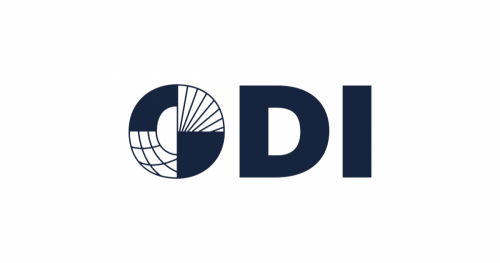
https://odi.org/en/press/eminent-economists-to-draghi-franci-g20-heres-h...
Dear Prime Minister Draghi, Finance Minister Franco,
Cc G20 Finance Ministers and Central Bank Governors
We warmly welcome the “People, Planet, Prosperity” framing of the Italian G20. We call upon the G20 Leaders and Finance Ministers meeting on February 26th to agree the following steps to deliver historic increases in the quality and quantity of financing for a global recovery that is job-rich, resilient, and environmentally, socially and financially sustainable.
Together we must recognize that there are three concurrent crises to crack- the Covid-19 pandemic, inequality and climate change. We must therefore: ensure vaccine equity to create the conditions for a stable and broad-based global recovery; offer major liquidity and countercyclical finance for emerging and vulnerable economies and marginalised communities in the south and north; and ensure financing for sustained recovery that fuels green jobs and sets a path towards more sustainable, inclusive and resilient growth. These three crises and the commensurate steps required could feel overwhelming. But they can be managed over a practical phased approach in 2021 from response to recovery and re-set, starting with these steps:
On February 26th please focus on these Response to Recovery Priorities:
- Agree full funding for the ACT Accelerator and related vaccine equity efforts in LICs/LMICs
- New allocations of the IMFs Special Drawing Rights that could quickly mobilize the equivalent of at least US$650 billion in SDRs and agree SDR redistributions to increase resources that can be used especially by poor and vulnerable countries;
- Extend debt service standstills through 2022- including more debtors and creditors.
- Establish a new “Liquidity and Sustainability Facility” to reduce risk premia for sovereign and non-sovereign developing country borrowers and to mobilize additional private capital
- Maintain country programmable aid and fill the UNOCHA humanitarian aid appeal to prevent a wave of famines in 2021.
- Direct the Multilateral Development Banks to significantly increase net financial flows, with a mix of balance sheet optimisation, capital increases, an accelerated IDA20 round.
During 2021 move from Recovery to Reset: - through these further strategic steps:
- Building on the G20 common framework, offer more debt transparency, relief and cancellation programs, where warranted, and re-set the debt architecture to balance the interests of creditors and debtors, including via mandatory collective action clauses.
- Hardwiring 2030 emissions reduction targets to recovery: eradicate fossil fuel subsidies, ratchet up carbon prices and attach environmental conditions to fiscal spending. Ensure the $100b in climate finance promised is delivered, transition plans fully funded and fully integrate sustainability disclosures into the International Financial Reporting Standards.
- Hardwiring enhanced financial governance to grow impact and revenues, through open contracting, open budgeting and opening aid and all SDG financing so citizens can scrutinize public expenditures and results; tackling tax avoidance through global tax cooperation for fairer and more coherent taxation of multinational enterprises; stemming illicit capital flight by closing secrecy jurisdictions and loopholes such as the “ignorance” defence.
- Resetting for resilience to pandemics: increase support for International Health Regulation measures, viral surveillance, health systems and safety nets for vulnerable communities
- Relaunching WTO discussions to give marginalised countries and communities a stronger voice and harness the power of trade for the SDGs.
After a turbulent 2020 the financial and economic system needs your steady strategic steer in 2021. Agreeing these phased practical steps will help us navigate these stormy waters, increasing fiscal space to transform health and education systems, deliver a green jobs boom, and chart a route towards the Sustainable Development Goals and shared prosperity for all people on this planet.
Signed by
Amar Bhattacharya, Director Secretariat G24 Finance Ministers & Brookings Institution
Bertrand Badre, CEO Blue like an Orange Sustainable Capital, Fmr Chief Economist World Bank Group
Caroline Anstey, President and CEO, Pact
Donald Kaberuka, Former President of the African Development Bank
Emmanuel Guerin, Executive Director-International Group, European Climate Foundation
Guido Schmitt-Traub, Partner SYSTEMIQ
Homi Kharas, Senior Fellow Center for Sustainable Development, Brookings Institution
Hans Peter Lankes, Fmr VP IFC, London School of Economics
Kiyoshi Kodera- Fmr ES Development Committee of World Bank & IMF, Chair Wateraid Japan
Kyle Peters, SVP, Operations, World Bank (retired)
Marek Belka, Member of the European Parliament
KY Amoako, President of the African Center for Economic Transformation
Mark Leonard, Co-founder and director of the European Council on Foreign Relations
Maria Ramos, Former Chief Executive Officer of ABSA Group Limited
Mark Plant, Chief Operating Officer of CGD Europe & Co-Director of Development Finance
Masood Ahmed, President of the Center for Global Development
Nora Lustig, Director, Commitment to Equity Institute (CEQI)
Ronan Palmer, Associate Director, E3G
Sara Pantuliano, Chief Executive at ODI
Stefano Manservisi, Fmr DG EC DEVCO, CGD Fellow
Sufian Beker, Former Finance Minister Ethiopia
Suma Chakrabarti, Chair ODI
Trevor Manuel, Former Finance Minister South Africa










Add new comment